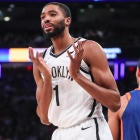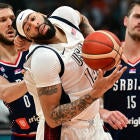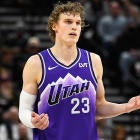
The NBA made waves last week when ESPN's Adrian Wojnarowski reported the league wanted to create an upper spending limit on team salaries in order to limit the payrolls of some of its bigger market contenders. The Golden State Warriors set the NBA record for highest payroll last season, and the Los Angeles Clippers and Brooklyn Nets have a chance to do so this season, and many league owners view such spending as untenable from both a financial and competitive balance standpoint.
Of course, the league cannot do a thing about it without the consent of its players, who would surely push back on such a move. "There will be a lockout," one source from the players' side told Marc Stein, "before there's a hard cap."

CBS Sports HQ Newsletter
Your Ultimate Guide to Every Day in Sports
We bring sports news that matters to your inbox, to help you stay informed and get a winning edge.
Thanks for signing up!
Keep an eye on your inbox.
Sorry!
There was an error processing your subscription.
The NBA's current salary structure is built around a soft salary cap. Teams must stay below the cap if they plan to sign external free agents without using exceptions or make heavily unbalanced trades from a salary perspective. However, the cap is considered "soft" because there are a number of mechanisms a team can use to go above it, including cap exceptions, Bird Rights on a team's own free agents and trades that fall within the league's allowable 125 percent parameters. The league does have a hard cap mechanism in place, but it can only trigger in three very specific circumstances: when a team uses the non-taxpayer mid-level exception, the bi-annual exception or acquires a player via sign-and-trade. That hard cap lasts one season.
The sort of hard cap the league is proposing would be much stricter, essentially creating a single limit for team spending that the entire league would need to follow every year. This is a third-rail issue for players because it would limit their earnings potential. Take Golden State, for example. If Draymond Green opts into the last year of his deal or re-signs, the Warriors will have five players making more than $24 million next season. Under this proposal, they likely would have to move at least one of them. Additionally, teams like the Warriors, Clippers and Nets pressure other teams into spending more in order to compete.
Creating a true hard cap would cost players money, plain and simple. They are not going to agree to a revised system that takes money out of their wallets. If the owners insist on this sort of structural change, they'll either need to offer the players something extremely valuable in exchange or accept the possibility that it will lead to a lockout.


















